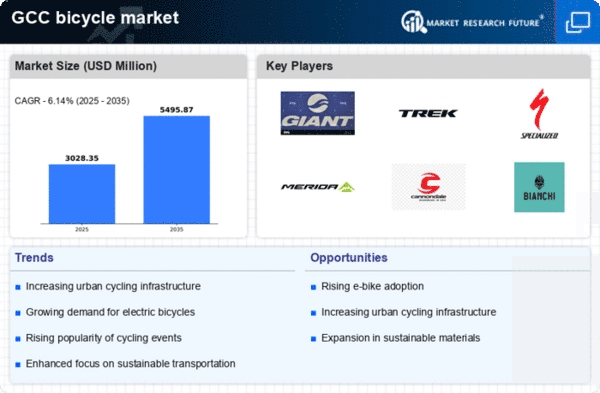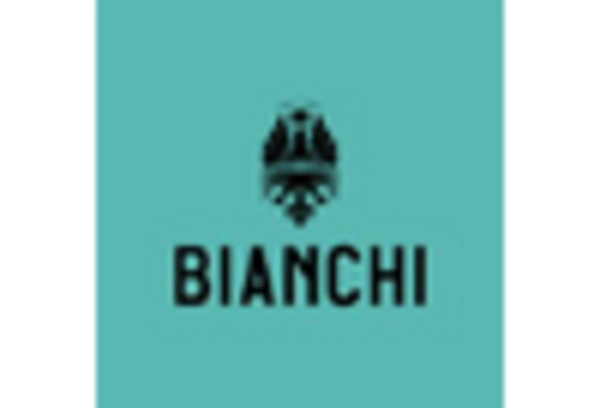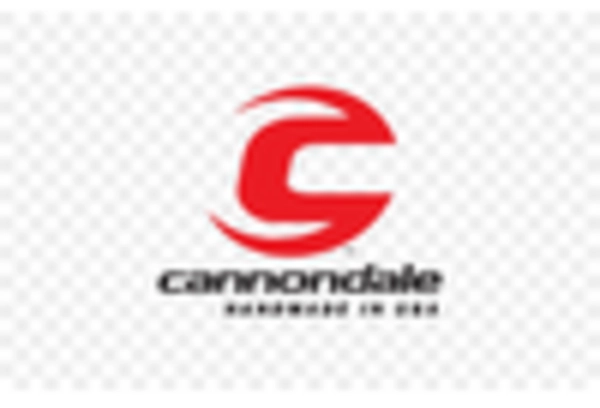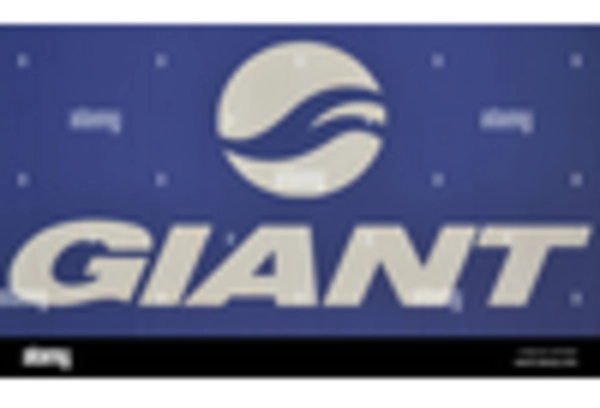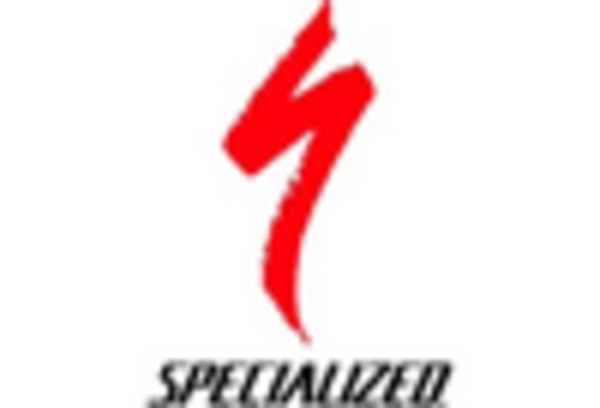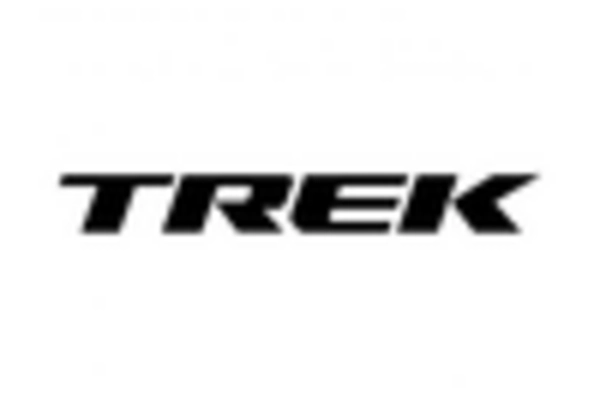Government Policies and Incentives
Government initiatives aimed at promoting cycling as a mode of transport are significantly influencing the bicycle market. Various GCC nations are implementing policies that encourage the use of bicycles, such as tax incentives for bicycle purchases and subsidies for manufacturers. For example, Saudi Arabia's Vision 2030 includes plans to enhance cycling infrastructure, which could lead to a 15% increase in bicycle sales by 2027. These policies not only aim to reduce traffic congestion but also promote healthier lifestyles among citizens. The bicycle market is thus positioned to thrive under supportive governmental frameworks that prioritize sustainable transport.
Technological Integration in Cycling
The integration of advanced technologies in bicycles is reshaping the bicycle market. Innovations such as smart bikes equipped with GPS, fitness tracking, and connectivity features are attracting tech-savvy consumers. The demand for electric bicycles (e-bikes) is also on the rise, with a reported increase of 30% in e-bike sales in the GCC over the last year. This technological evolution not only enhances the cycling experience but also appeals to a broader demographic, including commuters and recreational riders. As technology continues to evolve, the bicycle market is expected to expand, driven by consumer interest in high-tech cycling solutions.
Environmental Awareness and Sustainability
Growing environmental consciousness among consumers in the GCC is fostering a shift towards sustainable transportation, thereby impacting the bicycle market. As awareness of climate change and pollution rises, more individuals are opting for bicycles as a greener alternative to motor vehicles. This trend is reflected in a 20% increase in bicycle sales in the region over the past year. The bicycle market is likely to continue benefiting from this shift, as consumers seek to reduce their carbon footprint. Additionally, local governments are promoting cycling as part of broader sustainability initiatives, further enhancing the appeal of bicycles.
Urbanization and Infrastructure Development
The rapid urbanization in GCC countries is driving the bicycle market as cities expand and develop infrastructure to accommodate cycling. Governments are increasingly investing in cycling lanes and bike-sharing programs, which enhances accessibility and safety for cyclists. For instance, the UAE has seen a rise in dedicated cycling paths, contributing to a projected growth rate of 8% in the bicycle market over the next five years. This trend indicates a shift towards sustainable urban mobility solutions, aligning with the region's vision for smart cities. As urban areas become more congested, the bicycle market is likely to benefit from the growing preference for eco-friendly transportation options.
Rising Disposable Income and Lifestyle Changes
Increasing disposable income levels in the GCC are contributing to a shift in consumer spending habits, positively impacting the bicycle market. As more individuals have the financial means to invest in leisure activities, cycling is becoming a popular choice for both recreation and transportation. The market has seen a growth of approximately 12% in premium bicycle sales, indicating a trend towards higher-quality products. Additionally, lifestyle changes, including a focus on fitness and outdoor activities, are encouraging more people to adopt cycling as a regular practice. This evolving consumer behavior is likely to sustain growth in the bicycle market.


